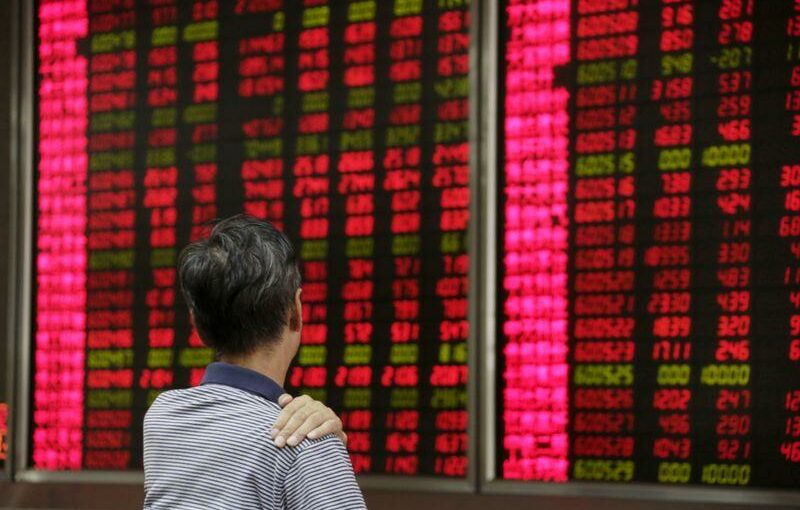SYDNEY (Reuters) – Asian share markets slipped on Monday after a raft of Chinese data showed a surprisingly sharp slowdown in the engine of global growth, just as much of the world races to stem the spread of the Delta variant of COVID-19 with vaccinations.
Figures on July retail sales, industrial production and urban investment all missed forecasts, a trend that is only likely to get worse given the recent tightening in coronavirus restrictions there. [L1N2PN03I]
“Asia’s low vaccination rates and low tolerance for community spread suggest it is the region most at risk economically from the Delta variant,” said JPMorgan economist Bruce Kasman.
“China is in the midst of removing policy supports, which looks likely to restrain domestic demand growth and weigh on regional performance through the rest of this year,” he added. “With these drags building in recent weeks we have been lowering 2H21 regional growth forecasts.”
There was added uncertainty about the possible geopolitical implications of the sudden collapse of the Afghan government and what it mean for political stability in the region.
MSCI’s broadest index of Asia-Pacific shares outside Japan eased 0.2%, nudging back toward the lows for the year touched last month.
Chinese blue chips were hanging onto gains of 0.3%, perhaps in anticipation of a more aggressive policy easing from Beijing.
Japan’s Nikkei fell 1.8%, though economic growth topped forecasts for the June quarter.
Nasdaq futures and S&P 500 futures were both down 0.2%. EUROSTOXX 50 futures fell 0.4% and FTSE futures 0.6%.
Wall Street had managed fresh records last week even as a survey showed a shock slump in U.S. consumer sentiment to the lowest since 2011 amid Delta fears.
The dismal report pulled 10-year Treasury yields down to 1.27%, after a sharp drop of 8 basis points on Friday that erased a week of steady increases. [US/]
It also wiped out a week of gains for the dollar, sending it back to 92.517 against a basket of currencies from a near five-month top of 93.195.
The euro bounced to $1.1799 and away from major chart support at $1.1740, while the dollar recoiled to 109.36 yen leaving behind last week’s peak of 110.79.
Kim Mundy, a senior currency strategist at CBA, argued the dollar could rally this week if minutes of the Federal Reserve’s last policy meeting confirm a hawkish shift on tapering.
The minutes are out on Wednesday while Fed chair Jerome Powell is speaking on Tuesday.
“We expect the FOMC to announce it will taper its monthly asset purchases in September if the August payrolls is strong,” said Mundy.
“We judge a tapering announcement next month is not widely expected, so if the minutes show the FOMC discussed the possibility of announcing a taper as soon as September, we expect the dollar to jump.”
In Asia, the Malaysian ringgit fell to a one-year low on reports the country’s Prime Minister was about to resign.
In commodity markets, gold extended its bounce to $1,778 in the wake of a sudden stop-loss tumble to $1,684 at the start of last week. [GOL/]
Oil prices eased partly on concerns coronavirus travel restrictions would hurt demand, particularly in China. [O/R]
Brent fell 78 cents to $69.81 a barrel, while U.S. crude lost 80 cents to $67.64.
Source: Read Full Article
